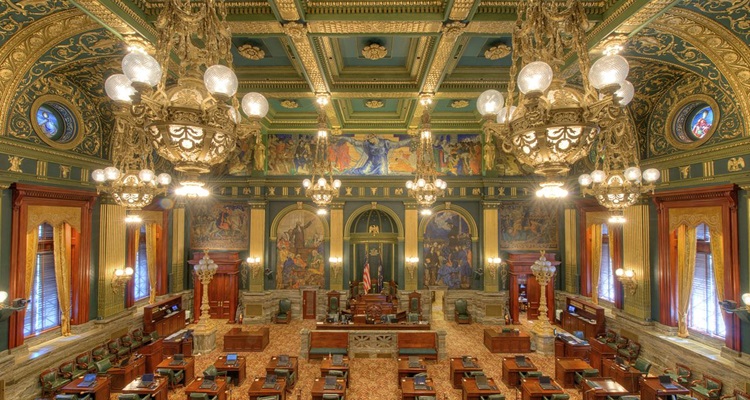The push to legalize online betting is once again the focus of gaming proponents as Pennsylvania lawmakers and the governor seek revenue sources for the state that don’t include raising taxes.
After a hearing scheduled to take place today before the House Gaming Oversight Committee to discuss gaming expansion was canceled, the state is planning to host a replacement hearing before both the House and Senate, according to sources close to the situation, as cited by Onlinepokerreport.com.
Gov. Tom Wolf revealed his budget proposal for the 2017-2018 fiscal year last week, which includes $150 million in revenue from “gaming expansion,” however, the governor failed to identify what that means exactly. According to lawmakers contacted by the Tribune-Democrat, the likely choice for that gaming expansion would be online gambling offered by existing casinos.
The most recent online gambling and gaming reform bill, HB 392, was introduced last week and is similar to HB 1887 that made it through the House late in last year’s session. That House bill budgeted $100 million in gaming expansion revenue, however, it failed as the 2016 legislative session closed without the Senate having made the decision to vote on the measure.
In addition to legalizing online gambling, HB 392 would also see fantasy sports legalized and regulated, and authorize multi-state progressive and skill-based and hybrid slot machines; along with fixing the local share tax dilemma. The bill would also do away with the casino amenity requirement for Category 3 casinos and would authorize tablet gaming at specific airports.
Further complicating matters, however, are concerns regarding the possibility of the federal government closing the door on online gambling. In 2015, then Republican candidate Sen. Lindsey Graham (S.C.) reintroduced his so-called Restoration of America’s Wire Act. He, along with six other senators at the time also supported the bill.
In 2011, the Justice Department changed its interpretation to say the law shouldn’t be used to prosecute online gambling. Ten attorneys general in November requested that Donald Trump’s transition team weigh in on the 2011 interpretation made under the Obama White House, which at the time opponents said would open the door to a widespread expansion of online gambling.
Sen. Patrick Stefano, R-Fayette County, who is the vice chairman of the Community, Economic Development and Recreation committee, the overseer of gaming bills in that chamber, said he would be shocked if the Trump administration moved to ban online gaming, according to the Tribune-Democrat.
Currently, three states including Delaware, Nevada, and New Jersey have made online gaming legal. Pennsylvania is among several others looking to follow suit as lawmakers in the state are feeling the pressure to get something done. Fueling the urgency, last year the state Supreme Court said revenue sharing methods with host communities are illegal. The high court gave the Legislature until May 26th to rewrite the law.



